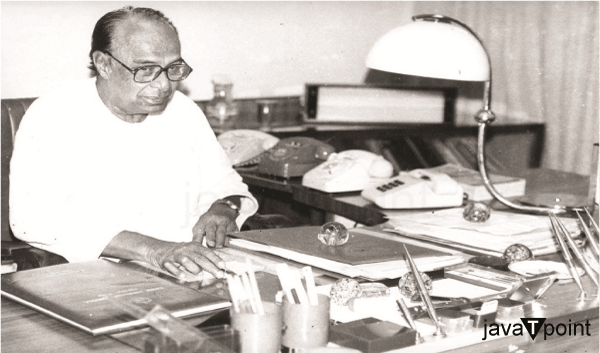Biju Patnaik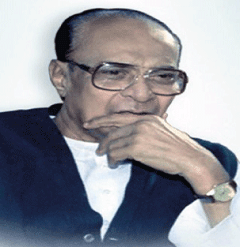
Bijayananda Patnaik is sometimes referred to as Biju Patnaik. He was a politician as well as an aviation engineer, navigator, industrialist, expert pilot, much-liked freedom fighter, and most importantly, a well-known and exceptional personality. He had a heroic personality and became famous and well-known only by his own hard work. Napoleon was a role model for him, thus he followed in his footsteps. Biju Patnaik was skilled at motivating and winning over his employees. Brief Profile
Biju Patnaik Short BiographyBiju Patnaik, a brave aviator, nationalist, and politician, twice held the position of third Chief Minister of the state of Odisha. He had a brave attitude and rose to prominence and notoriety via his struggles. The birthdate of Biju Patnaik is March 5, 1916. at Cuttack, Odisha, he was born at the home of his parents, Lakshminarayan and Ashalata Patnaik. His exploits as an aviator in the fight for freedom against British colonialism persisted for a very long time. For his incalculable contributions to India's freedom, Biju Patnaik was widely praised. The Odisha government has given his name to a number of institutions, including the Biju Patnaik Stadium in Nalco Nagar, Angul, the Biju Patnaik University of Technology, and the Bhubaneshwar Airport. In honour of his memory, his son Naveen Patnaik declared his father's birthday to be the Panchayat Raj Diwas, an official holiday in Odisha. His stamp was released by the Indian Postal Department as a mark of respect in his honour. The Biju Patnaik commemorative five rupee coin was also released by the Indian government later that year. Due to his valour and audacious action he was also awarded the highest civilian medal, the "Bhumi Putra," by the Indonesian government in 1996. At the Bhubaneshwar Airport, a bronze monument of Biju Patnaik measuring 18 feet tall has been erected. Biju Patnaik Personal LifeBiju Patnaik was blessed with three kids?two sons and a girl?after exchanging vows with Gyan Patnaik. The position of Chief Minister of Odisha is presently held by his younger son Naveen Patnaik, who continued in his father's footsteps. Prem Patnaik, his first child, is a businessman who has his headquarters in Delhi. His father's daughter Geeta Mehta was a successful English author who wrote on India's westernisation. 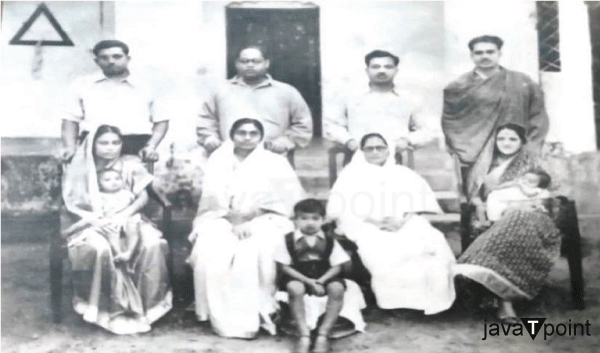
Mission Primary School and Mission Christ Collegiate School in Cuttack, Odisha, are where Biju had his primary education. In 1932, he registered for an intermediate science class at Ravenshaw College. He served as the university's football, hockey, athletics, and cricket teams' head coach for three years. He was a dedicated athlete. Later, he applied to the Aeronautical Training Institute of India, where he studied to become a pilot. Contribution Towards Industrial SectorIn the decades after independence, Patnaik began building an industrial oligarchy in Odisha, a state with a poor economy. "People cannot grow unless the industries were developed and established here," Patnaik declared on June 15, 1962, at the opening of the Orissa Planning Board. In addition to iron ore and manganese mines, he assisted in the establishment of textile factories. In addition, Patnaik played a crucial part in the creation of Rourkela Steel factory, India's first integrated steel factory in the public sector, and utilised his political influence to create Paradip Port, one of the most important maritime gateways. Bharat Ratna Demanded by the State's VoiceThe two pillars of Sri Biju Patnaik's philosophy were socialism and federalism. He fervently supported equitable resources for all Indian states in the genuine federalist sense. He was a fantastic illustration of a real statesman. He consistently shown courage for the sake of the nation. In addition to being a bureaucrat and important political figure in India, he made several additional contributions to the advancement of the nation as an aviator during the struggle for independence. Odisha's DevelopmentThe growth of the state of Odisha was significantly influenced by Biju Patnaik. He is known for the creation of the Paradeep Port, the Talcher Thermal Plant, the Sainik School and Regional College of Education in Bhubaneswar, the MIG factory in Sunabeda, the Engineering College in Rourkela, the Balimela Hydel Project, the Odisha University of Agriculture and Technology in Bhubaneswar, and the Express Highway that connects the iron ore deposits of Sukinda and Paradeep. FamilyBiju Patnaik is referred to as a son-in-law of Punjab as a result of his marriage to Gyan Patnaik, a member of the Punjabi community. Like Biju, his wife also worked as a pilot. She really obtained her commercial pilot's licence first among Indian women. Gyan Patnaik assisted Biju in the 1940s during the campaign for freedom and the evacuation of British families from Rangoon when the Japanese besieged the city. PoliticsPatnaik was chosen without opposition from the North Cuttack seat to serve in the Odisha Legislative Assembly in 1946. He defeated Jagannath Prasad in 1952 and Surada in 1957 to win. He took up the role of state Congress president in 1961. Under his direction, the Congress Party won 82 out of 140 seats, and Patnaik (representing the Chowdwar constituency) was elected chief minister of Odisha. He held the office until 2 October 1963, when he resigned in accordance with the Kamaraj Plan to revive the Congress party. At the age of forty-five, he served as the Chief Minister of Odisha. 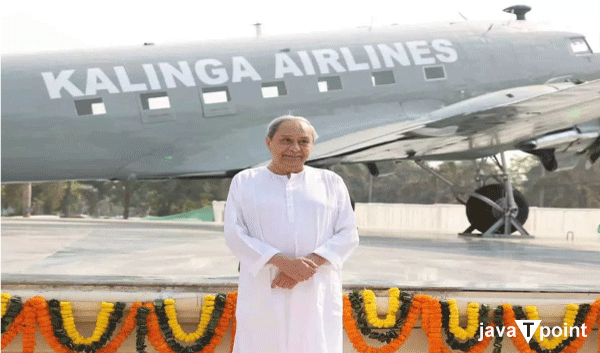
Indira Gandhi, who gained control of the Congress Party in 1967, was close to Patnaik. They did, however, disagree in 1969 about the presidential election. In place of the Congress, he founded the Utkal Congress, a local political party. His party performed admirably in the 1971 assembly election. After getting back in touch with his old buddy Jayaprakash Narayan, Patnaik joined the JP movement when it gained pace in 1974. In 1975, when the Emergency was proclaimed, Biju Patnaik and other opposition leaders were among the first people detained. After being set free in 1977, he represented Kendrapara in the Lok Sabha, and from 1977 to 1979, under the leadership of Morarji Desai and Choudhary Charan Singh, he served as the Union Minister for Steel and Mines. 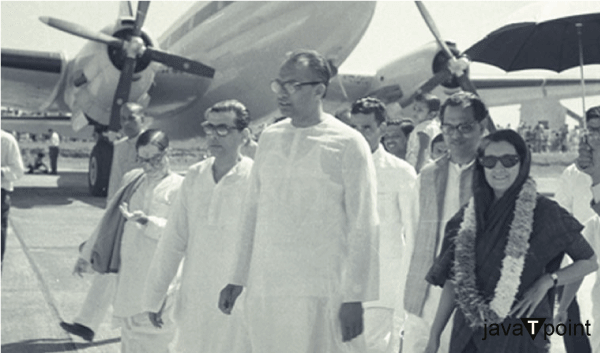
In 1980, Biju was initially chosen to serve in the Lok Sabha, and in 1996, he was once again chosen. From 1990 until 1995, Biju Patnaik served as the state of Odisha's chief minister after the Janata Dal won the state assembly election. Socialism and federalism were at the core of Patnaik's political beliefs. In the real spirit of federalism, he fervently supported providing equal resources to all Indian states that required them. Patnaik was lovingly referred to as "India's buccaneer" by Nehru. Biju Patnaik has the boldness, dynamism, and passion to work, according to Nehru, who spoke of him while he was a member of the Indian Parliament. Giving Odisha extra help is thus not a mistake. Facts about Biju Paitnaik that no one knows
Role in Freedom Struggle
Role in Kashmir Integration
Role in Indonesian Freedom Struggle
DeathOn April 17, 1997, Biju Patnaik died from a cardio-respiratory condition. ConclusionBiju Patnaik passed away on April 17, 1997. He was one of the political figures who successfully planted the seeds of political consciousness in Odisha. He was one of Odisha's greatest builders. He was tenacious, energetic, and passionate about working for Odisha. He was also adamantly against corruption. He once instructed people to beat up corrupt officials to fight corruption. He continues to have a particular place in the hearts of the Odia people as the "Kharavela of Kalinga" and the "Hero of Kalinga." He has made unprecedented contributions to several different fields. Always remembered will be him.
Next TopicDr Zakir Hussain
|
 For Videos Join Our Youtube Channel: Join Now
For Videos Join Our Youtube Channel: Join Now
Feedback
- Send your Feedback to [email protected]
Help Others, Please Share




